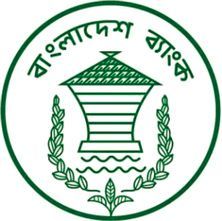‘We have set 15.8% as domestic credit growth because the credit flow in the last fiscal was lower than the set target’
The target was 16.5% in the second half of the last fiscal year, which ended on June 30.
After discussing with stakeholders and economists, BB Governor Fazle Kabir announced the monetary policy at the central bank’s headquarters on Wednesday.
He said the bank was targeting 12.1% credit growth in the public sector and an overall domestic credit growth ceiling of 15.8%.
“We have set 15.8% as domestic credit growth because the credit flow in the last fiscal was lower than the set target,” the governor said.
The credit growth has only been lowered for the public sector, not the private sector.
The Exporters Association of Bangladesh (EAB) president, Abdus Salam Murshedy, was critical of the central bank policy.
“Both the exports earnings and private sector investment growth are showing little growth, but Bangladesh Bank has contracted the credit growth target in its monetary policy for the next six months,” he told the Dhaka Tribune.
“If Bangladesh Bank increases the credit growth, it will encourage both banks and investors to disburse more and expand businesses.”
When journalists at on Wednesday’s event asked the governor whether the MPS is contractionary, since the credit growth target has been lowered, the response came from a deputy governor.
Deputy Governor SK Sur Chowdhury replied: “The recent rise in foodstuff prices are an omen for inflation. Hence we have set the domestic credit growth target at 15.8% (but) it will be adjusted if needed.”
Fazle Kabir said the policy will help the Bangladesh economy to achieve 7.4% GDP growth at the end of the current fiscal year, while limiting the inflation rate to 5.5% as per the government target in the budget for this fiscal year.
The inflation rate at the end of last FY stood at 5.4% against the pre-set target of 5.8%.
The governor also suggested that in order to meet the budget deficit, the government should increase borrowing credit for state-owned banks, and cut dependency on national savings certificates by lowering the existing interest rate on NSCs and fixing a ceiling for their sales.
News:Dhaka Tribune//27-jul-2017




Comments